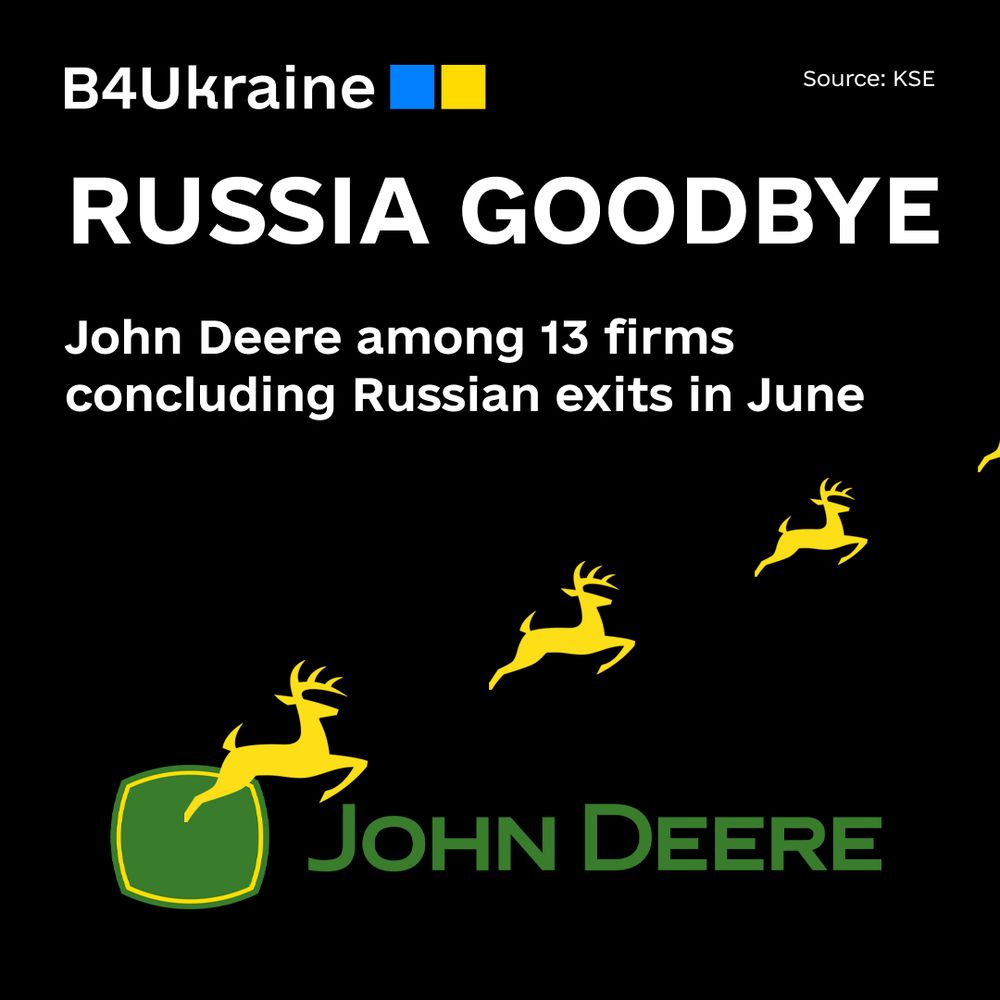
In June 2024, only thirteen international companies successfully concluded the process of withdrawing from the Russian market by selling or liquidating their operations in the country, according to an analysis by the Kyiv School of Economics (KSE).
This brings the number of businesses that have fully left Russia since the full-scale invasion of Ukraine to only 409, while more than 2,000 are still doing business as usual in Russia, thus contributing to its highly militarized economy.
The list of the most recent Russia leavers includes the US heavy equipment manufacturer John Deere, the German camera manufacturer Leica Camera, the US semiconductor manufacturer Texas Instruments, the German export credit insurance company Euler Hermes, the Dutch semiconductor manufacturer NXP Semiconductors, the Irish mobile games developer Playrix, the Sri Lankian telecommunications service provider Dialog Axiata, the Austrian formwork solutions firm Doka, the international alcohol holding company Global Spirits, the Danish pump manufacturer Grundfos, the German live commerce provider Home Shopping Europe (HSE), the German manufacturer of road construction equipment Wirtgen-International-Service, and the Japanese logistics services provider Yusen Logistics.
According to KSE, multinationals pay annually an estimated 20 billion in corporate taxes to the government led by internationally wanted war criminals. Fast-moving consumer goods firms (FMCGs) comprise the second-highest revenue-generating and tax-paying sector in Russia, after alcohol and tobacco, making a significant contribution to the country’s war economy. Ironically, FMCG firms are those that pride themselves on their “social purpose” and strong commitment to Environmental, Social, and Governance (ESG) principles.
The FMCG sector includes major brands such as Mondelez ($1.4 billion in revenue in Russia in 2023), PepsiCo ($4.2 billion), Mars ($2.9 billion), Procter & Gamble ($1.8 billion), Nestle ($2.8 billion), and Unilever ($700 million). All of the six firms have been named “International Sponsors of War” by the Ukrainian government for their significant contribution to Russia’s war economy.
All these firms argue that they provide ‘essential’ goods and show concern for the welfare of their Russia-based employees while producing chocolates and biscuits, while also being obliged to help the state recruit eligible employees.
A recently issued US Government Business Advisory on Russia clarifies the risks for US companies still doing business in the country, including the risk of being complicit in Russia’s growing number of war crimes, which currently stands at over 130,000.
The B4Ukraine Coalition calls on all international companies still doing business in Russia to drop their keys and leave the market of the aggressor state. G7 and allied governments should swiftly follow US suit and issue similar guidance to their own companies.